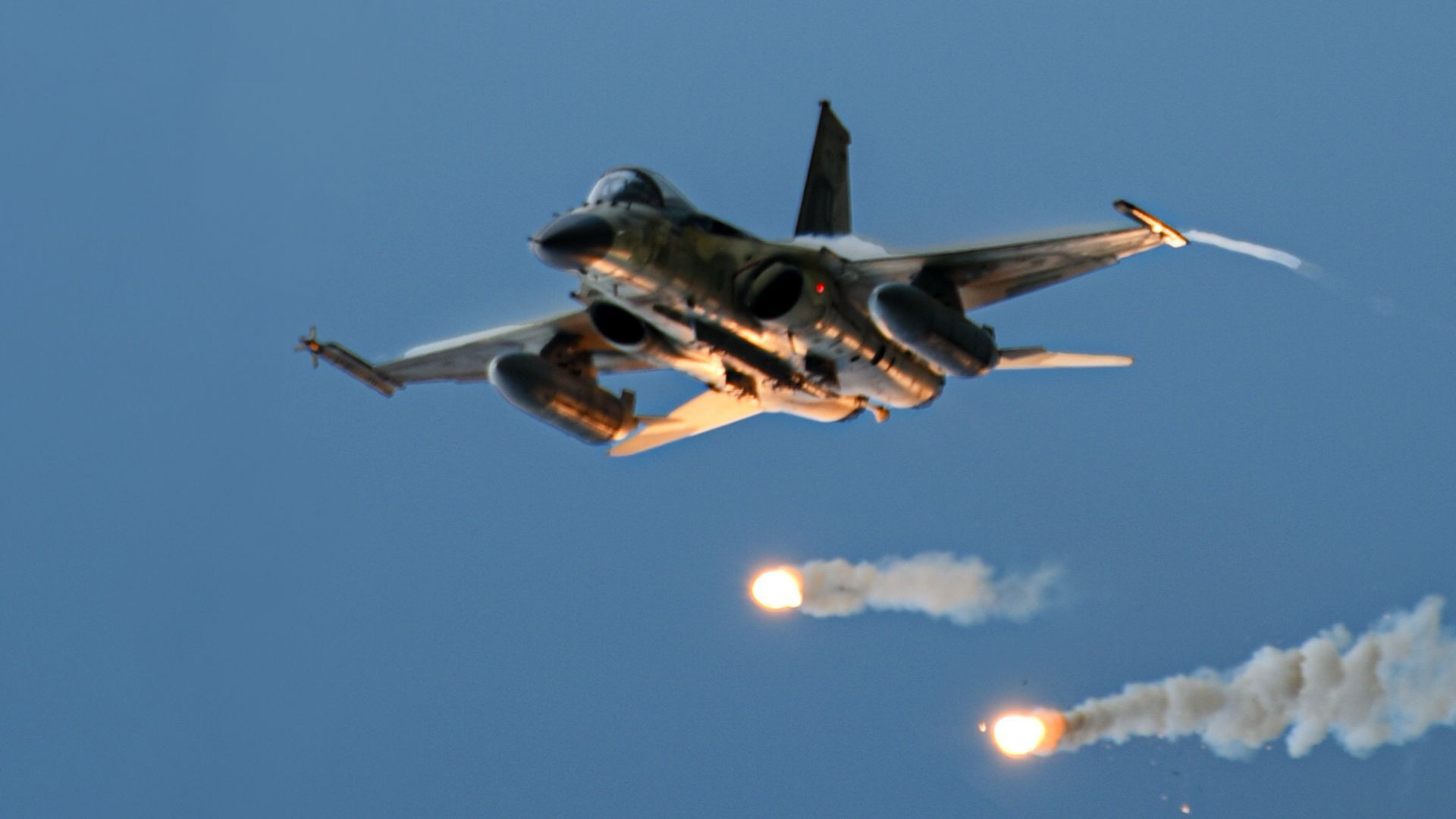
Israel launches 480 strikes in Syria, moves troops beyond buffer zone
By Ryan Robertson (Anchor), Roey Hadar (Producer), Bast Bramhall (Video Editor)
After the fall of Syrian President Bashar Assad, Israel is on the offensive –– carrying out 480 strikes in Syria in the two days following the collapse of Assad’s government. Israeli troops also deployed into and beyond the Golan Heights, a demilitarized zone Israel has administered for over 50 years.
Media Landscape
See how news outlets across the political spectrum are covering this story. Learn moreBias Distribution
Left
Right
Untracked Bias
A Syrian activist group reported Tuesday, Dec. 10, that Israeli troops made it to a town about 15 miles outside of Damascus, Syria’s capital.

Download the SAN app today to stay up-to-date with Unbiased. Straight Facts™.
Point phone camera here
A spokesperson for Israeli forces told CNN that they were operating beyond the buffer zone but denied that they were advancing toward Damascus.
Israeli leaders are celebrating the fall of Assad’s government, which received backing from Iran. Now, with virtually no defenses, Israel is working to destroy Syrian weapons, airfields and manufacturing sites.
Israeli strikes have already destroyed most of Syria’s strategic weapons stockpiles and sites where chemical weapons were reportedly held. Speaking with journalists Monday, Dec. 9, the Israeli foreign minister said he hoped it would prevent the weapons from falling “into the hands of extremists.”
Many of the strikes centered on the port city of Latakia, home to Syria’s navy. It’s the same city where the U.S. and other nations struck a research facility that was also believed to be linked to chemical weapons.
The Latakia region is also a center for Syria’s minority group of Alawite Muslims, a group to which both Assad and his father, Hafez Assad, belonged. However, people in the region brought down a statue of Hafez Assad –– who also served as president of Syria –– after his son’s ouster.
The rebels who overthrew Assad’s government are now establishing a government of their own.
Israeli Prime Minister Benjamin Netanyahu warned the rebel government could pay a big price if it allows Iran to operate in Syria or provides weapons to Hezbollah, the anti-Israel militant group in neighboring Lebanon. However, the one thing both groups have in common is their dislike of Iran and its meddling in Syria.
RYAN ROBERTSON: After the fall of Syrian President slash Dictator Bashar Assad, Israel is on the offensive– carrying out 480 strikes in Syria in the two days following the collapse of Assad’s government.
Israeli troops also deployed into and beyond the Golan Heights, a demilitarized zone Israel has administered for over 50 years. A Syrian activist group reported Tuesday Israeli troops made it to a town about 15 miles outside of Damascus, Syria’s capital
A spokesperson for Israeli forces told CNN that they were operating beyond the buffer zone but not advancing toward Damascus.
Israeli leaders are celebrating the fall of Assad’s government, which received backing from Iran. With no one and nothing to defend them, Israel is working to destroy Syrian weapons, airfields, and manufacturing sites.
Israeli strikes already destroyed most of Syria’s strategic weapons stockpiles and sites where chemical weapons were reportedly held. Speaking with journalists Monday, the Israeli foreign minister said he hoped it would prevent the weapons from falling, quote, “into the hands of extremists.”
Many of the strikes centered on the port city of Latakia, home to Syria’s navy. It’s the same city where the U.S.–and other nations– struck a research facility that was also believed to be linked to chemical weapons.
The Latakia region is also a center for Syria’s minority group of Alawite Muslims. Assad and his father were both Alawite. But people in the region brought down a statue of Hafez Assad, the former president’s father and predecessor.
The rebels who overthrew Assad’s government are now establishing a government of their own.
Israeli Prime Minister Benjamin Netanyahu warned the rebel government could pay a big price if it allows Iran to operate in Syria or provides weapons to Hezbollah, the anti-Israel militant group in neighboring Lebanon. But, the one thing all the rebel groups do have in common–they hate Iran and its meddling in Syria.
For Straight Arrow News, I’m Ryan Robertson.
And for all the latest updates on this and other top stories, download the Straight Arrow News app.
Media Landscape
See how news outlets across the political spectrum are covering this story. Learn moreBias Distribution
Left
Right
Untracked Bias
Straight to your inbox.
By entering your email, you agree to the Terms & Conditions and acknowledge the Privacy Policy.
MOST POPULAR
-
 AP Images
AP Images
Trump administration secures release of US teacher Marc Fogel from Russia
Watch 1:537 hrs ago -
 Getty Images
Getty Images
How US spy planes are being used to combat Mexican drug cartels: Report
Watch 2:148 hrs ago -
 Getty Images
Getty Images
200,000 people sign satirical petition for Denmark to ‘buy California’ from the US
Watch 1:5910 hrs ago -
 Getty Images
Getty Images
GOP could raise student loan bills to pay for Trump’s tax cuts
Watch 1:5911 hrs ago




